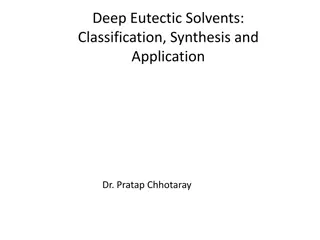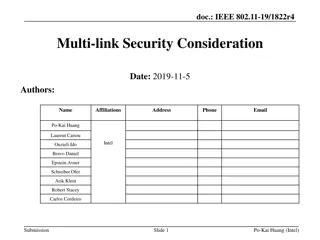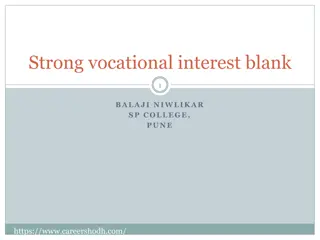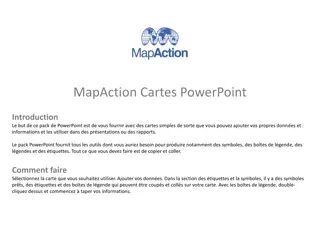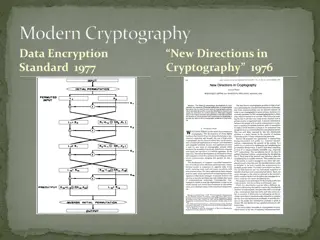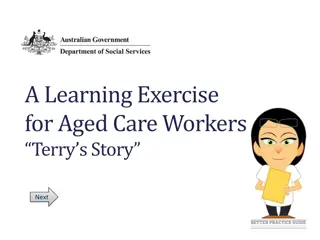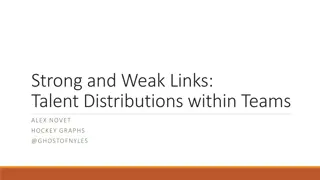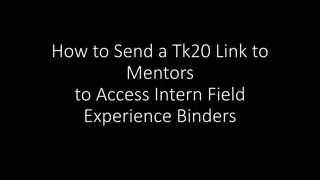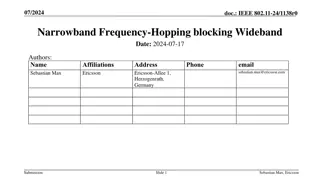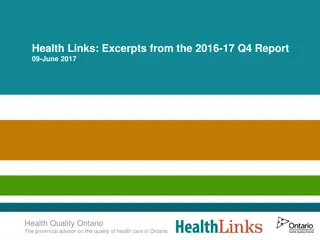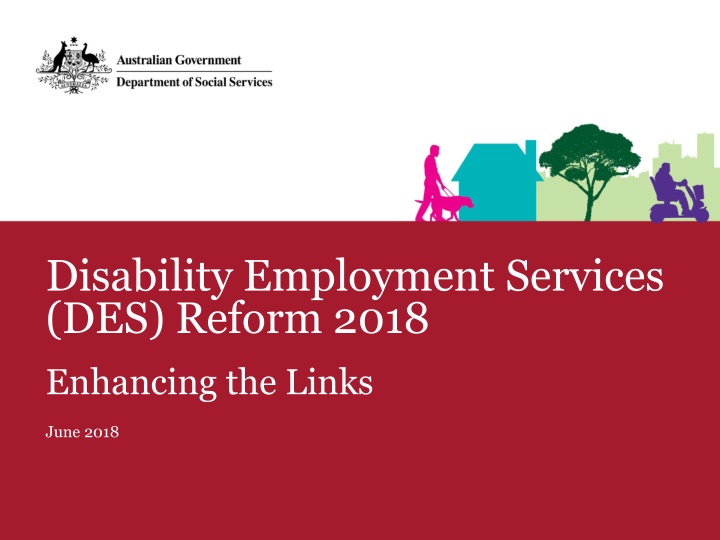
Enhancing Links in Disability Employment Services Reform 2018
Disability Employment Services (DES) underwent reform in 2018 to enhance support for job seekers with disabilities, offering two key services: Disability Management Service (DMS) and Employment Support Service (ESS). DES providers offer tailored employment assistance, build relationships with employers, and help participants meet obligations. Eligibility criteria include being assessed for DES support, having work capacity, and meeting residency requirements. Changes from July 2018 aimed to increase inclusion of people with disabilities, focusing on participant choice and performance linkages.
Download Presentation

Please find below an Image/Link to download the presentation.
The content on the website is provided AS IS for your information and personal use only. It may not be sold, licensed, or shared on other websites without obtaining consent from the author. If you encounter any issues during the download, it is possible that the publisher has removed the file from their server.
You are allowed to download the files provided on this website for personal or commercial use, subject to the condition that they are used lawfully. All files are the property of their respective owners.
The content on the website is provided AS IS for your information and personal use only. It may not be sold, licensed, or shared on other websites without obtaining consent from the author.
E N D
Presentation Transcript
Disability Employment Services (DES) Reform 2018 Enhancing the Links June 2018
What is Disability Employment Services (DES)? Enhancing the Links
Disability Employment Services (DES) For people whose disability, injury or health condition is assessed as their main barrier to employment Two Services: Disability Management Service (DMS) job seekers who require assistance to find employment, and who may need occasional support at work Employment Support Service (ESS) job seekers who need assistance to find employment, andwho require long-term Ongoing Support in the workplace Enhancing the Links
DES Providers Delivered by a mix of large, medium and small, for profit and not-for-profit organisations Provide tailored employment assistance Build relationships and linkages with employers and other stakeholders Connect participants to skills development options Provide ongoing support in the workplace Help participants meet mutual obligations Enhancing the Links
Who is Eligible for DES? Job seekers who: assessed as requiring DES support aged at least 14 but not yet attained Age Pension qualifying age are at or above the legal working age in their state or territory have a future work capacity with intervention (within 2 years) of at least 8 hours per week are an Australian resident (some exceptions apply) are not studying full time not working at or above their Employment Benchmark hours Enhancing the Links
Changes to DES from 1 July 2018 Enhancing the Links
Key DES Changes from 1 July 2018 Aim is to increase economic and social inclusion of people with disability Changes include: o Greater participant choice and control o Greater competition and contestability between providers o Strengthening link between provider revenue and performance o Trialling possible extension of DES to additional final year school students Enhancing the Links
Increased Participant Choice and Control Greater choice of provider Choice of providers from across Employment Service Area boundaries Flexible modes of contact Improved ability to transfer between providers Enhancing the Links
Improving Competition and Contestability Between Providers Initial five-year term for panel of providers Subsequent grant application processes Removal of market share arrangements Funding follows the participant Enhancing the Links
Strengthening Link between Provider Revenue and Performance Rebalancing from approx. 60:40 service fees to outcome fees to approx. 50:50 split Risk-adjusted funding model: Some participants require more support, some less, to get employment Participants assigned funding level based on likelihood of achieving employment outcome Provider revenue more dependent on success in getting people into work. Enhancing the Links
Strengthening link between Provider revenue and performance In addition to 13 and 26-week Outcome Fees: 4-week outcome payment replaces Job Placement Fee Paid when participants work benchmark hours for at least three weeks, over a four week period 52-week outcome payment Paid when participants remain employed for 52 weeks Enhancing the Links
DES and Younger Job Seekers Enhancing the Links
Importance of post-school education 14.0% 12.8% 93% of all new jobs will require post- school education 12.0% 10.4% 10.0% Unemployment rate 7.7% 8.0% 6.0% 4.8% 4.0% 4.0% 3.4% 2.0% 0.0% Bachelor degree or higher qualification Advanced Diploma/Diploma Certificate III/IV Year 12 Certificate I/II Below Year 12 Source: ABS, Education and Work, May 2015, 15 to 74 years; Department of Jobs and Small Business, Skill Projections, five years to November 2020 Enhancing the Links
Eligible School Leavers (ESL) in DES Provides early streamlined access to DES for final year school students with significant disability Job seekers can directly register with a DES provider Job seekers are not required to undertake an ESAt Receive support to begin to address barriers to open employment and transition to post-school work Enhancing the Links
Students undertaking ASBATS or State/Territory Transition to Work programs or NDIS SLES Students choosing to undertake Australian School-Based Apprenticeships and Traineeships (ASBATs): o do not need to be in their final year of school o must be undertaking an ASBAT that has a modified curriculum or delivery to accommodate the student s disability. Young people who are in the final six months of an approved state/territory transition to work program or NDIS SLES supports. Enhancing the Links
School Leaver Trial Evaluate expanding eligibility for DES to students with less significant support needs in their final year of school Determine if DES support increases the number who successfully transitioning from school to work, without any adverse affects on their educational attainment. The School Leaver Trial will not alter current ESL arrangements Enhancing the Links
Useful Information and Links JobAccess website (jobaccess.gov.au) DSS website (dss.gov.au) DES Program changes from 1 July 2018 DES Grant Agreement Enhancing the Links
Questions ?? Enhancing the Links










